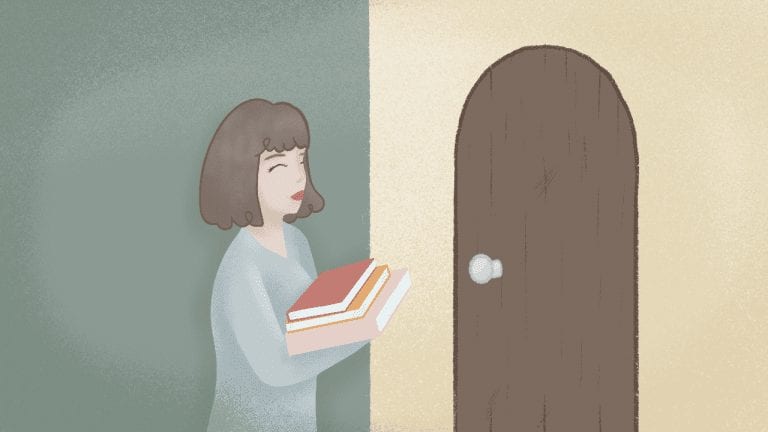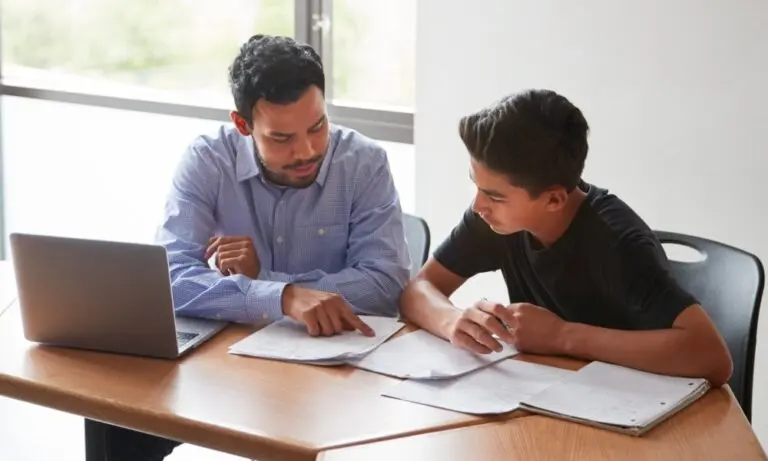
How to Get the Best Out of Your Student

It is well known that students who receive home tuition benefit from it. Since young students represent our future, the adults who are assisting them in developing—parents, instructors, and tutors—cooperate to make their path less difficult and increase their chances of success. Our mission as tutors is to assist students in realizing their potential, growing and forming beneficial habits, and learning how to push themselves to perform well in their studies.
Table of Contents
How to make sure you get the best out of your students?
Tutors utilize a variety of strategies to ensure that their students produce their best work. They should never be given half-baked tasks if they are to reach their full potential. Consider it as a picture of the butterfly effect, whereby every action they take now accumulates and influences them later on. But how could tutors know which methods and approaches will produce the desired outcomes when there are so many available? After all, certain tactics will always be effective in some situations but not in others. Here are some questions to ask yourself if you’re a tutor looking to help your students have the finest possible learning experience and produce their best work.
1. What is the standard of “quality” for you?
Standards can be subjective more often than not. This implies that one cannot hold another to the same standards as oneself. It is possible to grade a student’s work using many criteria, though. This makes it clear that students need to become familiar with the various standards required for various types of work.
This does not imply, however, that the student should constantly rely on the criteria set forth for them to judge the caliber of their work. When tutors want their students to turn in their finest work, they should teach students how to create standards that are unique to them. Hence, tutors ought to be available to assist students in developing their criteria.
Without direction, applying “good quality” to their work isn’t like magic. Before they can do it on their own, they must first learn how to do it. Tutors can assist their students in establishing their own policies and guidelines in order to meet the goals they have set for themselves. In addition, the tutor can provide examples of how the students might apply their criteria to their work and help them when necessary.

2. What is the purpose of the task?
There may be times when a student limits their labor and produce work that falls short of what they are proud of because they are working just for the sake of working. The student might interpret the purpose of the assignment anyhow they see fit if they don’t understand it, which could prevent them from finishing it. It’s also beneficial if the tutor asks why the student opts for a particular approach to do the assignment.
They can do their task with the best results if you can help them comprehend why they are working on it. Additionally, emphasize to them the significance of the assignment and that they can complete all of their assignments, no matter how challenging. Once more, help as required, but also motivate them to complete their work using the approach and quality standard that they have selected.
3. Why not start small tasks first?
When taken on head-on, big tasks might be intimidating. They have the potential to cause stress and burnout in students and can also be extremely overwhelming. Teach the student to divide enormous tasks into smaller ones by showing them how to do so. Make sure they understand the concept of completing little tasks first and how it keeps them from being overwhelmed when faced with a larger, more difficult assignment. Therefore, breaking down the assignment or concept can also assist students in maintaining their pace and applying what they have learned to the smaller work to complete the larger goal.
4. Do you revisit all past works?
Gathering homework assignments and past student work during tutoring sessions has the benefit of enabling the tutor to put together the pieces and assess the student’s progress. Tutors can determine which areas a student has made progress in, which ones need more work, and which ones they still struggle with by reviewing the student’s previous assignments. As a result, past assignments let students assess their performance and identify areas for growth.
Tutors and students can review their past work to see where the student has made progress and how different approaches may continue to produce the greatest outcomes while completing a task. In order to test if the student can produce better work than what they have already produced, the tutor may even urge them to practice redoing their earlier assignments using a different approach. This allows the student to experiment with various approaches and choose which one best suits their needs. Finding fresh approaches to improve performance or discovering alternative techniques may also excite the student.
5. How do you give out feedback?
Tutors should keep in mind that since they work with children, most of the time, they will be sensitive to certain remarks. Tutors should refrain from commenting on their students’ behavior because this could give the students the wrong impression and make them lose interest in the material because they would believe that they are inadequate or that they have failed.
How the tutor provides feedback is equally crucial as the content of the feedback. Make sure the feedback-giving period is both adequate and doesn’t drag on. Giving feedback that takes too long could make the learner feel like they did something wrong because it sounds like a lecture. It is also beneficial if the tutor provides the comments in a way that does not scare or unnerve the student. Recall that the purpose of feedback is to help people grow, not to diminish them.
Tutors must also ensure that the comments they provide will support the student’s preferred method of learning. Additionally, they can provide students with examples of how to better their approaches to specific jobs or point out things that they could have overlooked. When a student makes mistakes, especially right after finishing the assignment, don’t react right away. Rather than providing feedback right away, spend some time reviewing the work and considering alternative approaches to finishing the task at hand. Tutors can therefore assist students in applying feedback to their work and making greater use of it, as feedback ought to be helpful.

6. What are the distractions keeping them from their tasks?
Distractions can be a contributing factor to students not giving their maximum effort, particularly when they are working on specific assignments. While some students rush through their work because they want to play or watch TV, others lack the enthusiasm to start at all.
Although it can be difficult to get the student’s attention, it is in their best interests to keep them concentrated on their task. Tutors should be able to assist students in maintaining focus on the job at hand, whether through the use of music, movies, or hands-on learning opportunities. Make sure the goal they are attempting to do and the activity you are using to keep them focused are in line.
7. Do you provide encouragement?
Students who receive positive reinforcement feel as though their work is valued and noticed. Acknowledge the student’s efforts when they perform well. Make the most of this chance to show them that they can achieve even greater success in the future. Consequently, tutors might utilize that exact opportunity to remind students of their hard work while they are struggling. Students get more motivated, feel better about themselves, and become more confident when they reflect on their past accomplishments.
Conclusion
Every tutor wants their students to provide their best work. That is easier said than done, though. Along the way to achieving the student’s goals, the tutor and the student may face numerous challenges. Even if the tutor wants the finest work possible from the students, they should be aware that producing the best work requires assistance. And who could provide them with better assistance than their tutors at home? We believe that by asking the questions above, tutors will be able to come up with unique ways to support their students’ academic success.

Carelle
Carelle is a teacher who has been through the ups and downs of the teacher and learner life. She wishes for every learner to gain educational satisfaction that will help embody the people they want to be in the future.




